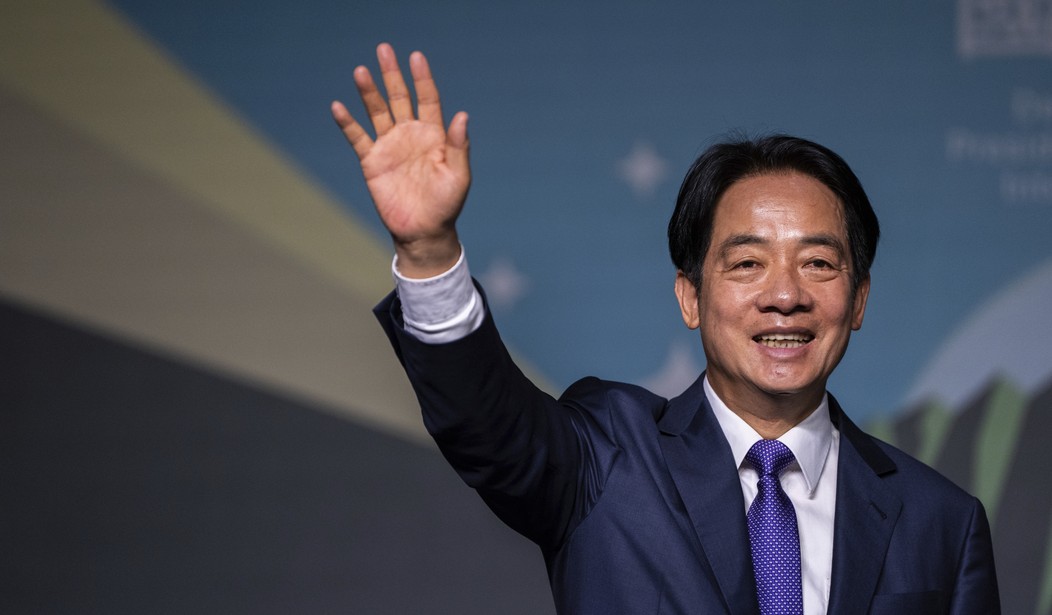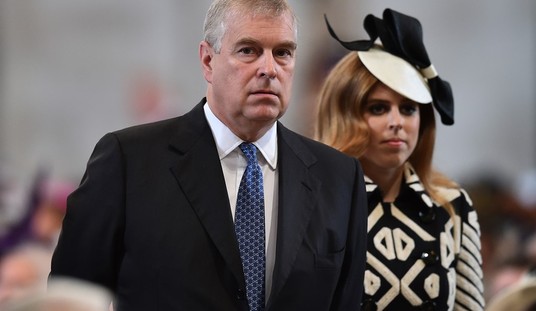Even as the Trump administration is trying to negotiate an end to the war in Ukraine (and saying some things in the process that aren't remotely fair), the administration also seems to be hinting it is changing the US's long-held position on Taiwan. The change to a State Department fact sheet was small but significant.
The fact sheet, produced by the department's Bureau of East Asian and Pacific Affairs, previously stated that the U.S. opposes "any unilateral changes to the status quo from either side; we do not support Taiwan independence; and we expect cross-Strait differences to be resolved by peaceful means."
However, in the updated version published on Feb. 13, the line stating that the U.S. does not support Taiwan's independence had been removed.
The updated paragraph now reads: "We oppose any unilateral changes to the status quo from either side. We expect cross-Strait differences to be resolved by peaceful means, free from coercion, in a manner acceptable to the people on both sides of the Strait."
That wasn't the only change on the State Department site.
The State Department website has also been changed to add a reference to Taiwan’s cooperation with a Pentagon technology and semiconductor development project and to say the U.S. will continue to support Taiwan’s participation in international organizations, “including membership where applicable.”
China has consistently opposed Taiwan’s membership in international bodies such as the World Health Organization.
The website changes were praised by Taiwan, whose foreign minister, Lin Chia-lung, said in a statement Sunday that his ministry welcomed “the support and positive stance on U.S.-Taiwan relations” that they demonstrated.
This may not sound like much but China is prone to freak out over the least divergence from its preferred narrative on this topic. They treated it as a very big deal.
The United States has “gravely backpedaled” on its position on Taiwan and sent the wrong message to “separatist forces” on the island, ministry spokesperson Guo Jiakun said...
“We urge the U.S. to ... stop emboldening and supporting Taiwan independence and avoid further damaging China-U.S. relations and the peace and stability of the Taiwan Strait,” Guo said when asked about the revision at a daily media briefing.
This certainly seems like a move in Taiwan's direction but some observers have argued that Trump's position on other foreign policy issues including Ukraine and Greenland are undermining the case for keeping China out of Taiwan.
“Trump’s rhetoric is doing China’s work for it in Taiwan,” said Ryan Hass, a China and Taiwan expert at the Brookings Institution and a former national security official in the Obama administration.
“With each statement by Trump that degrades the principle that territorial boundaries must not be redrawn by force or coercion, propagandists in Beijing likely are giving each other high-fives,” Hass said...
This is fueling fears in Taiwan that Xi might try to launch a military invasion of the island — using the same justification that Trump uses when talking about Greenland, for example — and making it more difficult for Washington to credibly object.
If the United States is threatening other nations with its military might, said Wei-Ting Yen, a political scientist at Academia Sinica, Taiwan’s national academy, “then what’s the moral ground on which we can say China cannot invade Taiwan?”
These seem like reasonable points but, again, the moves by the State Department seem to be pushing in the other direction, letting China know that they cannot assume the US will stand by if it launches an invasion. Trump has frequently said of Ukraine that the war would never have started if he had been president. So maybe he hopes to make sure that's true of Taiwan for the next four years. But you also have to appreciate the tight spot Xi Jinping is currently in.
China’s president, Xi Jinping, had hoped to win international hearts and minds through the Belt and Road Initiative, its global trade plan to build an international network of countries receiving Chinese investment. But as China’s own economy is weakened by a real estate crisis that started in 2021, the aim of showing Xi’s success through economic means is not working out as hoped.
The other avenue for Xi to enhance his reputation as leader is to bring Taiwan back into the Chinese fold. Since the Chinese Communist party came to power in 1949, various Chinese leaders have made reunification with Taiwan a long-term goal. So, if Xi could return Taiwan to China, he could be hailed domestically as one of the greatest leaders the country has ever seen.
If China’s plan to reunify with Taiwan was already a major challenge, Washington’s altered stance on Taiwan independence and overt opposition towards coercion or the use of force makes this task even more difficult for Beijing. This could weaken Xi’s image and undermine his rule further (and may of course be part of Trump’s agenda).
I'm all for weakening Beijing and Xi, but the old warning about cornered animals may apply here. We're applying tariffs which will hurt the already struggling Chinese economy and we're warning them about action against Taiwan. Will China decide it's best not to start a fight it can't win or will Xi lash out in a bid to boost his legacy as a powerful leader? I'm not sure we know the answer to that one at this moment.








Join the conversation as a VIP Member